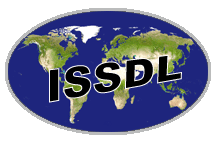Highlight of ISSDL - February 2018!
The International Symposium of Self-Directed Learning is next month! This post is provides a glimpse of one of the topics that will be available.
Badging and Micro-credentials to Cultivate 21st Century Skills
Institutions of higher education are under pressure from industry, government, accrediting bodies, and public opinion to adapt programs and curriculum to provide graduates that have BOTH specific workplace technical skills AND soft/employability skills. The pendulum that swings between professional preparation and liberal arts curriculum to deliver employees with workplace skills elements rarely stabilizes in the juncture of programs that satisfy all “customers” of the educational process. As markets and industry continue to evolve and emerge, so too do the expectations of business of new hires, which is not a new phenomenon. What is fairly new is the ability to personalize the educational process given current technology, as well as the trend toward the award of micro-credentials to connect credentials in ways that better link employers to learners with the required abilities.
There appears to be some level of disconnect between the expected abilities of graduates upon credential and degree completion and the assessment of universities and colleges regarding the accomplishments of their students. Given that technical and professional programs that embed workplace validated content standards do not appear to be meeting the industry mark of providing students who can communicate, problem solve, demonstrate work ethic, critically analyze information, utilize initiative, and adequate profession demeanor, new options are being explored. Employers rate student preparation of workplace competencies at level much lower than student rate themselves, per Hart Research Associates 2015 (see below) as presented by Education Design Lab reviewing the 21st Century Skills Badging Challenge (2107-18). Essentially, universities and colleges, as well as the students that attend these institutions, perceive themselves as much more successfully prepared for the workplace than the employers who are the direct beneficiaries of the delivered educational outcomes. In response, there is a movement to develop special programs to directly address the “soft skills” that industry has noted is missing in the talent pipeline.

Employability skills are a significantly hot topic in career and technical education. Jobs for the Future, National Network of Business and Industry Associations, and the Department of Education Office of Career and Technical Education are just three examples of groups that have established standards and frameworks to conglomerate industry feedback to set the stage for directly addressing the employer expressed needs beyond the request for technical and content education. To this end, Education Design Lab (http://eddesignlab.org/), an organization with a purpose of “designing education toward the future of work”, has tackled a design challenge focused on establishing an open, flexibility applied program targeting these types of skills The badging system that has been developed, titled 21st Century Skills, provides a curriculum and credential awarding process that can be uniquely implemented by institutions to align with their specific mission, vision, and logistic needs. An overview presentation of the work of “Badges and 21st Century Skills” can be found at: https://drive.google.com/file/d/13WtK9e9Vi_2DEjB-opmlGyS3c7-OaUgR/view
A suite of digital badges, has been created by Education Design Lab that include: critical thinking, resiliency, oral communication, cross-cultural competency, empathy, catalyst, creative problem solving, collaboration, and self-efficacy. These badges have been designed and validated in collaboration with industry, but the curriculum and validation completed in conjunction with a variety of higher education institutions. Each badge includes the fostering of experience and reflection, knowledge, and authentic assessment and is further described at the site: http://eddesignlab.org/2017/06/10-things-weve-learned-badging/
What does this have to do with self-directed learning and the International Self-directed Learning Symposium? A number of the competencies embedded within the 21st Century Badges align to the core construct of learner self-direction and the ability to engage in the practice of lifelong learning. While the other eight badges have been unpackaged, explored, and practically tested, what has been titled as the “self-efficacy” badge has not yet undergone a design process to identify the integrated sub-competencies, prototyping, and piloting of the concepts. The general constructs identified as associated with the self-efficacy badge include: self-awareness, self-authority over action, self-esteem, and modeling of behavior. Despite the current title of the badge, informal discussion has revealed many similarities with the core elements of self-directed learning.
Members of the International Society for Self-directed Learning (ISSDL) and attendees of the International Self-Directed Learning Symposium represent industry, non-profits, K-12, and higher education with perspectives from many disciplines and an array of professional titles, including student. It is within this context that Educational Design Lab and the membership of ISSDL will have the opportunity to collaborate to give life to a 21st century digital badge that supports the importance, relevance, and essential nature of learner autonomy in workplace success. The trend in higher education toward personalization of instruction has catalyzed the dialogue about the benefit and importance of increasing, leveraging and cultivating learner self-direction and this work further broadens and expands awareness of the construct.
Join the us at the 32nd International Self-directed Learning Symposium for an interactive, thought provoking, and informative general session that will be led by Education Design Lab to explore a new badge to be added to the existing suite. Your contributions to this national dialogue are vital to the topic!






















